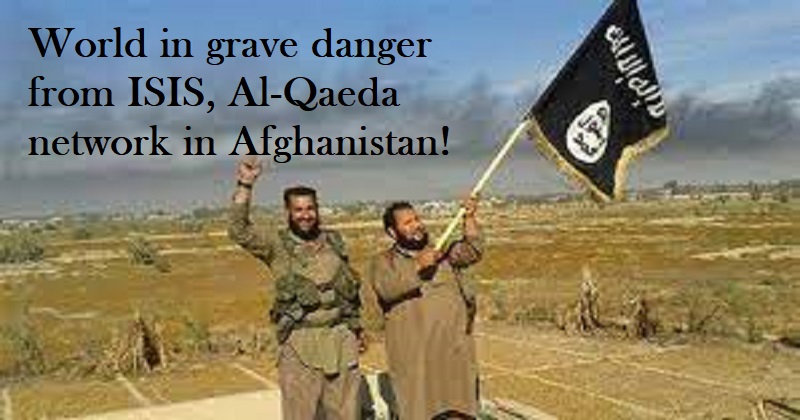
According to local media, John Bolton, a former adviser to the US National Security Council, warned in an interview with Voice of America that the area and the rest of the globe are in grave danger due to the rapid rise of ISIS and the Al-Qaeda network in Afghanistan. According to Khaama Press, Bolton stated during the VOA interview that the increasing number of foreign terrorists entering Afghanistan should worry everyone in the world and added that ISIS and al-Qaeda terrorist groups are reorganising there.
The former diplomat also criticised the Taliban for its connections to global terrorist organisations. He emphasised how the Taliban has disregarded the requirements of the Doha Agreement to combat terrorism ever since seizing control of Kabul in August of last year. ‘ Once again, the Taliban have shown that their statements aren’t worth the paper they’re printed on. Not just in Afghanistan, but throughout the world, they have posed a threat ‘, Bolton stated in the interview with VOA.
In light of the US drone operation that killed al-Qaeda leader Ayman al-Zawahiri, the former top official said that the Taliban had failed to uphold its obligations under the Doha Agreement, particularly given Zawahiri’s continued presence in Afghanistan, according to Khaama Press. The Islamic State-Khorasan (ISIS-K) has been able to extend its territory to almost all of Afghanistan’s provinces in the months since the Taliban assumed power at the federal level. According to the Washington Post, the U.N. mission in Afghanistan made this statement in November.
ISIS-K has also accelerated the pace of its attacks, carrying out ambushes, killings, and suicide bombers. In 2015, ISIS-K first set up shop in Afghanistan. Hafiz Saeed Khan, a citizen of Pakistan, who had sworn allegiance to the Islamic State’s commander at the time, Abu Bakr al-Baghdadi, in 2014, launched it. It attracted some recruits from the Taliban and other extremist organisations, but its original membership was primarily made up of Pakistani terrorists and was centred primarily in the eastern Afghan province of Nangahar.
An extreme Sunni Muslim movement known as Salafism is practised by the Islamic State. ISIS-K has frequently attacked the Hazara minority group of Shiites in Afghanistan. Sanaullah Ghafari, also known as Shahab al-Muhajir, is the leader of ISIS-K and is thought to be in eastern Afghanistan, according to the UN.
Al-Qaeda, an adversary of the Islamic State, and the Taliban have always had strong links. Although Taliban leaders agreed to prevent Afghanistan from serving as a safe haven for terrorist organisations in a 2020 agreement with the US, The Washington Post reported that the death of Al-Qaeda leader Ayman al-Zawahiri in a US drone strike in Kabul last month seemed to indicate ongoing ties between the groups.
The United Nations assessed that ISIS-K had between 1,500 and 2,200 fighters in Konar and Nangahar provinces before the Taliban took control, in addition to smaller cells in other regions of the nation. Leaders of the Islamic State criticised the Taliban’s win last year, believing it to be insufficiently severe. According to the UN monitoring team, ISIS-K received new funding of USD 5,00,000 from the core Islamic State group around the end of last year. In the fall, a Taliban intelligence official admitted that several Islamic State captives were freed as a result of his group’s struggle to topple the US-backed Afghan government.

Post Your Comments